Ukraine and Jewish Ties That Bind
“Their blood is in my veins and my heart is hurting for the Ukrainian people,” one Jewish Atlantan said.
Dave Schechter is a veteran journalist whose career includes writing and producing reports from Israel and elsewhere in the Middle East.
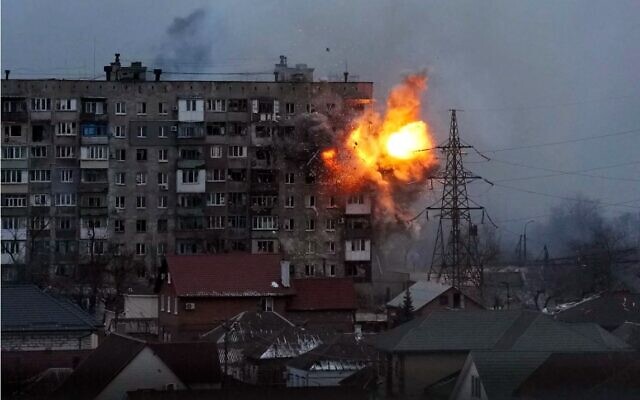
Abby Shashoua is the owner of The Fine Print Bakery, working from her home in Cumming. Ken Katz and Jeannette Flores-Katz are the proprietors of La Bodega at the MET, a carry-out eatery in the Adair Park neighborhood southwest of downtown Atlanta.
Shashoua and the Katzes are among more than 110 bakers and restauranteurs from across the United States and several European nations participating in “Hamantashen for Ukraine,” an international effort launched by the Jewish American owner of a bakery in Berlin.
During the Purim holiday period, proceeds from sales of the tri-corner pastries will go to Polish Humanitarian Action, a charity assisting Ukrainian refugees fleeing the Russian invasion of their country.
Shashoua (maiden name Forstot), whose family roots are in Lithuania and Ukraine, already was making hamantashen for her family when she came across the website hamantashenforukraine.com.
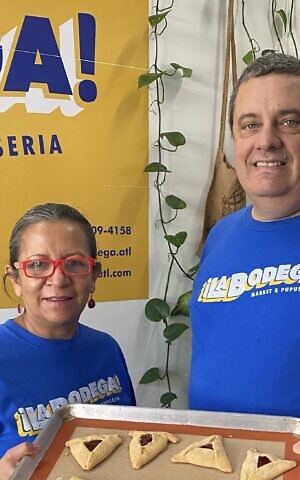
“Without question. Most definitely,” she said, when asked if her heritage has caused her to follow news from Ukraine. “It’s absolutely heartbreaking and terrifying,” particularly as it comes 80 years after the Holocaust, which claimed the lives of her Lithuanian forebears.
The former Gwinnett County teacher began baking full-time four years ago and offers an array of gluten-free and vegan items. She makes hamantashen to order, whether that be the more traditional fillings (poppy seed, apricot or prune), the chocolate filling favored by her seven-year-old son or the less traditional (such as strawberry or blueberry).
La Bodega at the MET is the successor to the former Buenos Dias Cafe, which was in the Georgia State University neighborhood. The menu features a variety of gluten-free pupusas from Jeannette’s native El Salvador, as well as Cuban sandwiches and various tacos.
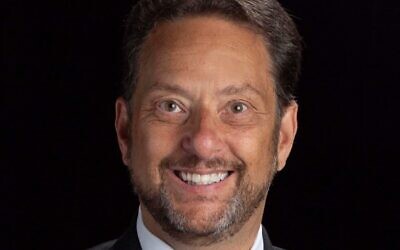
Katz, a native of the Bronx, was toying with the idea of baking hamantashen when he came across the “Hamantashen for Ukraine” website. During Purim, La Bodega is adding hamantashen filled with guava, a favorite ingredient in Latin America and Cuba, to the pastries (not gluten-free) baked fresh daily.
Katz said that his father left Latvia as a six-week-old in 1937, “for what sounds like a very similar reason” to that of Ukrainians fleeing their homes. An estimated 70,000 Jews were killed during Nazi occupation that began in 1941.
“History has a terrible way of repeating itself,” Katz said.
Like Shashoua and the Katzes, numerous other Jewish Atlantans are feeling an emotional tug at the plight of Ukrainians. A Facebook post that appeared the day after Russia invaded asked, “Just curious — how many of us with any familial links to Ukraine (like my paternal grandmother’s town of Narodychi) have looked up, say, its distance to Kyiv?”
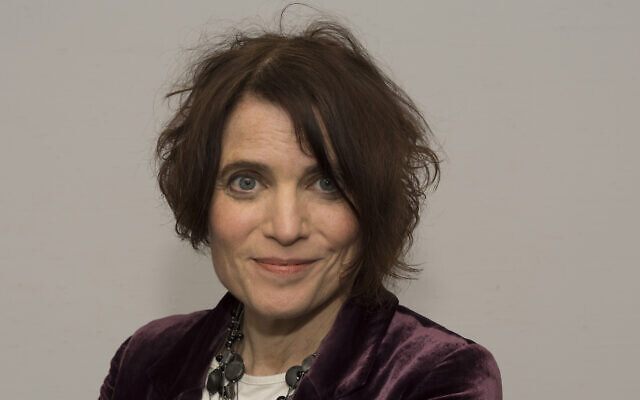
Within days, dozens of people responded, offering bits and pieces of their family histories, and the names of Ukrainian villages, towns and cities. The AJT contacted several of these people.
“The invasion of Ukraine has raised my level of interest and awareness of where my grandparents came from,” Ron Leopold said. “I’ve also spoken to family members to get the names of towns and look them up in the map,” locating Talne, Kiblych and Kolky.
“My grandfather’s family escaped from Ukraine — Dnepropetrovsk, now known as Dnipro — in the face of antisemitism, in the early 1900s,” Corey-Jan Albert said. “Obviously it’s been more than a century. So, it isn’t my home, but it certainly informed my mother’s upbringing, which in turn, informed my own. In that light, it’s part of where I come from.”
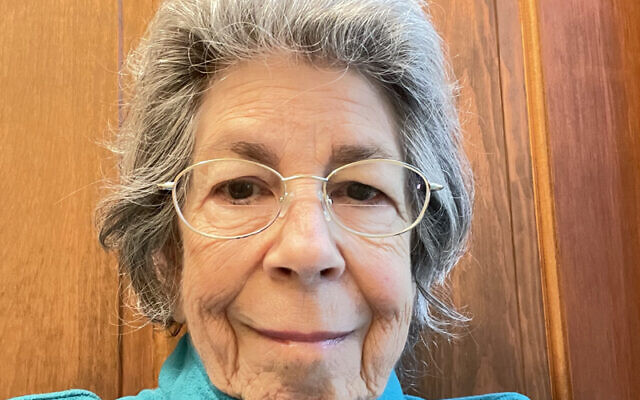
Mim Eisenberg’s maternal grandparents emigrated from Odessa in 1905. “Their blood is in my veins and my heart is hurting for the Ukrainian people,” she said. Eisenberg said that her grandmother never spoke of her home country, “But I think I am following the dreadful news of the invasion with more attention than others who don’t have Ukrainian blood in their veins.”
Joe Sterling said that three branches of his family came from what is now Ukraine and one from Latvia. “Growing up, members of my family called themselves ‘Russian Jews’ and that isn’t inaccurate because Ukraine was part of imperial Russia,” Sterling said. “I am interested in this conflict for many reasons, but the fact that I just might have distant cousins there is a constant thought. I am fascinated with the Jewish community, the bravery of the president [Volodymyr Zelenskyy, who is Jewish] and the strong national identity of the Jewish community there.”
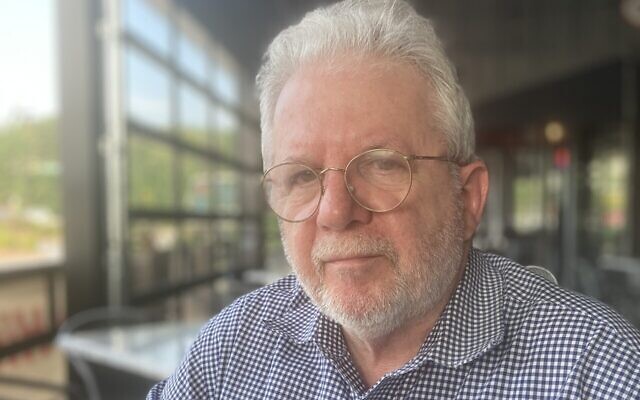
Emory University senior Jacob Busch remembers that national identity from his November 2017 trip to Ukraine as part of a BBYO delegation to an international conference of Active Jewish Teens, an organization of young Jews from the countries of the former Soviet Union. The Americans attended the conference in Kyiv and traveled to Kharkiv. They met with Jewish Ukrainians and visited Babyn Yar, where more than 33,700 Jews were shot to death in a ravine by German troops over a two-day period in September 1941.
Throughout that trip, “We were witnessing and experiencing the renaissance of Jewish life in the former Soviet Union,” young people either “reconnecting with a lost identity” or discovering an identity, Busch said.
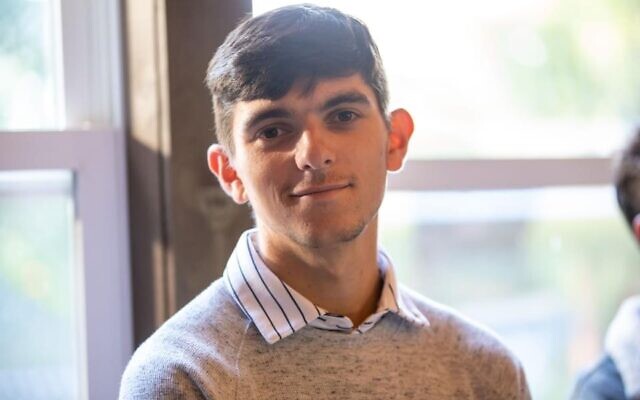
He reached out to a friend in Kyiv the morning after Russia invaded Ukraine. “His voice was shaky,” Busch said. “It was clear that this was something new to them, totally terrifying. … It was good to let him know that I supported him. They know we support them.”
One means of support is through funds raised by the Jewish Federations of North America (JFNA), and locally, the Jewish Federation of Greater Atlanta. JFGA announced its Ukraine Emergency Fund on Feb. 25, the day after the Russian invasion. By March 10, nearly $1.13 million from 743 donors had been raised. The funds will be distributed through on-the-ground partners in Ukraine, including the American Jewish Joint Distribution Committee, the Organization for Rehabilitation through Training and the Jewish Agency for Israel.
Additionally, the Arthur M. Blank Family Foundation announced a $250,000 grant to UNICEF, the United Nations International Children’s Emergency Fund. In a statement, Blank said: “I am pained by the human suffering that we’re seeing in Ukraine.
In this moment of crisis, we must do what’s right and support our brothers and sisters who have been forced to flee their homes or who are trapped in an escalating conflict. Our hearts go out to the Ukrainian people, who are in a desperate situation to save their homes, their families and their lives. We encourage others to join us, so that together we can all play a part in providing much needed humanitarian aid.”
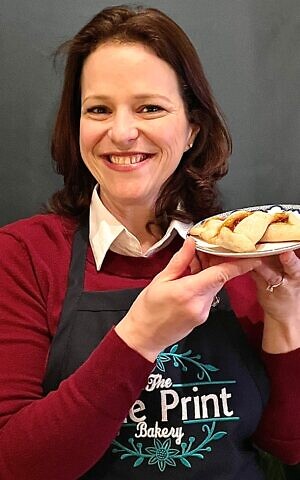
When Russia invaded Ukraine, case managers at Jewish Family & Career Services reached out to some 90 Ukrainian Holocaust survivors who are clients, most of whom are in the Atlanta area. Now in their 80s and 90s, the news has been traumatizing.
Anat Granath, a clinician on the agency’s Holocaust Survivor Support team, said: “I hear about their anxiety and fear. ‘It’s starting all over again.’ These feelings are not only from survivors from Ukraine and Russia, but for all of our Holocaust survivor clients. It is hard. The memories come up. They see the streets they used to walk. They tell us about their experiences. They are very anxious and afraid of war on a bigger scale. Communication is spotty. For those who have family there, they are all so scared.”
Amy Neuman, program manager of Holocaust Survivor Services, Aviv Older Adult Services for JF&CS, said that in one instance they were able to connect a survivor in Atlanta with a relief agency in Ukraine that was able to deliver food to relatives there.
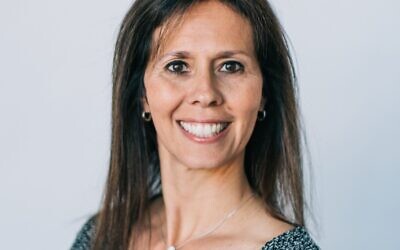
In addition to survivors living in metro Atlanta, JF&CS manages grant programs for The Conference on Jewish Material Claims Against Germany in a region comprised of Georgia, South Carolina, North Carolina, Virginia, Alabama, Mississippi, Arkansas, Louisiana and sections of Florida and Texas.
JF&CS asks that anyone who knows of Holocaust survivors in Georgia needing assistance call 770-677-9382 and for those elsewhere in the region call 770-677-9360 or contact them through the website jfcsatl.org.
- News
- World
- Dave Schechter
- Abby Shashoua
- The Fine Print Bakery
- Ukraine
- russia
- Putin
- Ken Katz
- Jeannette-Flores Katz
- La Bodega
- Met
- Adair Park
- Hamantashen for Ukraine
- Purim
- Polish Humanitarian Action
- Gwinnett County
- Buenos Dias Cafe
- Georgia state university
- Ron Leopold
- Corey-Jan Albert
- Mim Eisenberg
- Active Jewish Teens
- BBYO
- Joe Sterling
- Emory University
- Kyiv
- Kharkiv
- Babyn Yar
- jewish federation of greater atlanta
- Arthur M. Blank Family Foundation
- United Nations International Children’s Emergency Fund
- Jewish Family & Career Services
- Anat Granath
- Holocaust Survivor Services
- Aviv Older Adult Service
- The Conference on Jewish Material Claims Against Germany
- American Jewish Joint Distribution Committee
- the Organization for Rehabilitation through Training
- Jewish Agency for Israel



comments